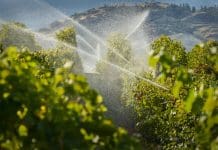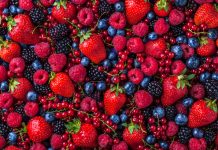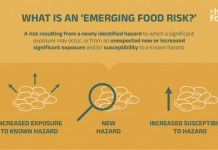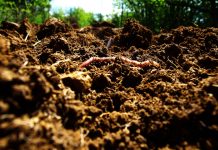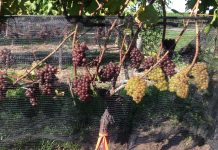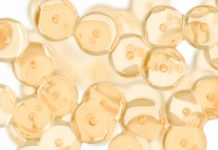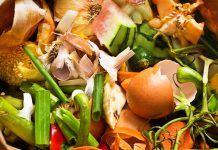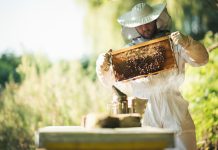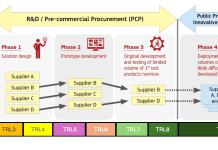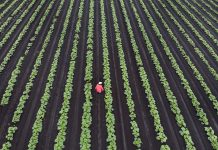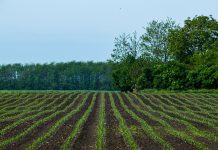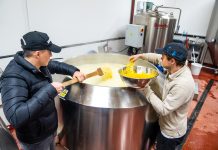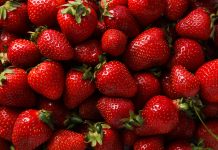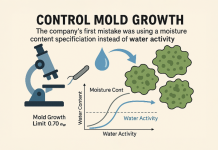Open Access Government produces compelling and informative news, publications, eBooks, and academic research articles for the public and private sector looking at health, diseases & conditions, workplace, research & innovation, digital transformation, government policy, environment, agriculture, energy, transport and more.
Home 2026
Archives
Start clean: Canada’s grapevine clean plant program
Debra Inglis and Sudarsana Poojari provide an update on Canada’s grapevine clean plant program, run in partnership with Brock University’s Cool Climate Oenology and Viticulture Institute, industry’s Canadian Grapevine Certification Network, with support from the Canadian Food Inspection Agency.
Berry and honey production in Alberta: Exploring the market system
Aleksandra Tymczak studies the berry and honey industries in Alberta’s agricultural system. Here, she discusses the challenges and opportunities for farmers to access markets, as well as the current capacity for the distribution system across Alberta’s agricultural system.
Improving food safety risk analysis for safer European food systems
The HOLiFOOD consortium is reimagining food safety risk assessment for the benefit of all stakeholders in the food chain.
CoDiet: You are what you eat
Learn about CoDiet, an international research initiative aimed at addressing diet-related diseases using innovative monitoring technologies and personalised nutrition.
Soil health: The importance of the rhizosphere
Lynette Abbott, Emerita Professor, The University of Western Australia School of Agriculture and Environment and UWA Institute of Agriculture, examines how the rhizosphere, a narrow collar of soil clinging to plant roots, is emerging as a key player in soil and plant health.
Terraforming life: Turning waste-to-value in Iceland’s circular economy
Sigurður Trausti Karvelsson, the Terraforming Life Project Coordinator and R&D Project Manager at First Water along with project partners; The Icelandic Farmers Association, Orkídea, SMJ Consulting Engineers, and Ölfus Cluster, present an initiative that transforms waste into resources within Iceland’s circular economy.
Clones for viticulture in Canada: National clonal selection program
Jim Willwerth from CCOVI at Brock University highlights the importance of clonal propagation in grapevine cultivation, as new vines are grown from cuttings of a ‘mother vine’ to preserve desirable traits. He also advocates for a national clonal selection program to assess new clones for Canada’s cool climate.
Fueling bone regeneration by rewriting immune metabolism
Chima V. Maduka, DVM, MS, PhD, and Christopher H. Contag, PhD, provide insights on tuning immunometabolism to resolve inflammation and promote repair at the bone–biomaterial interface.
Food waste as a complex social system: How computational social science can help
Researchers in Norway use computer modeling to understand the social complexities of food waste and to test potential interventions that could be part of the solution. How can computational social science contribute to this understanding?
Vitamin a toxicity: “Too much of a good thing”
Fredric Gorin, Sarah Torres, and Pamela J. Lein discuss the implications of vitamin A supplementation during a recent measles outbreak in the US. They explain that a common misconception – that vitamin A supplementation can prevent the transmission of measles among unvaccinated individuals – can result in vitamin A toxicity.
Energy-efficient greenhouse production for emission-free food cultivation
Michel J. Verheul discusses the advancements in energy-efficient and emission-free greenhouse production in Norway, focusing on the innovative methods developed by researchers at the Norwegian Institute of Bioeconomy Research (NIBIO).
Honey production in Alberta: Grassroots extension services
Aleksandra Tymczak studies the beekeeping and honey industry, which is an established sector of Alberta’s agricultural system. In this article, she emphasizes the importance of knowledge within the industry and the growing capacity of grassroots extension services to both share and acquire knowledge.
How innovation procurement can boost European water resilience
As Europe faces rising water crises, PCP WISE brings innovation procurement to the forefront to develop smarter, scalable tools for real-time water management and climate resilience.
Navigating the consumer-food interface: A regulatory perspective on plant protein in Canada
Christopher P.F. Marinangeli, PhD, RD, is the Director of the Centre for Regulatory Research and Innovation at Protein Industries Canada. He discusses the consumer-food interface from a regulatory perspective on plant protein in Canada.
CROPS4LIFE Project: Towards the decarbonisation of the agri-food system in Vitoria-Gasteiz
The CROPS4LIFE project aims to decarbonise the agri-food system, enhancing the city’s sustainability efforts. Currently, only 1.5% of fresh food consumed locally is sourced from the region. The project promotes a transition to a local, agroecological food system, focusing on short supply chains and generational renewal in farming.
How EIT food fosters bioeconomy entrepreneurship: From policy to people – and back
Representatives of EIT Food Education discuss the importance of entrepreneurship education in advancing Europe’s bioeconomy, highlighting that a sustainable economy relies on bio-based solutions and overcoming skills gaps.
Predictive models for the food industry
Gry Carl Terrell from the Danish Meat Research Institute introduces a valuable tool to maximise shelf life and ensure food safety.
The role of brewing in the emerging circular economy: A case study
Freddie Ugo from Beyond Belief Brewing Co. discusses the role of brewing in the emerging circular economy by presenting a case study.
Berry industry in Alberta: Exploring the processing system
Aleksandra Tymczak studies the berry industry, an expanding industry in Alberta’s agricultural system. Here, she discusses the current capacity for processing berries as well as the challenges and emerging opportunities to develop the berry processing system.
Microbial contamination: How water activity stops costly food recalls
Microbial contamination can lead to recalls and financial losses for food manufacturers. Novasina AG emphasizes the key difference between moisture content, which measures water volume, and water activity, which indicates the energy status of water and is crucial for assessing microbial growth.

